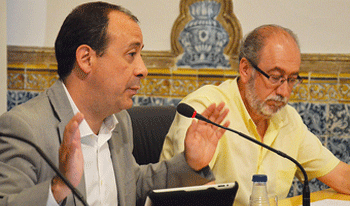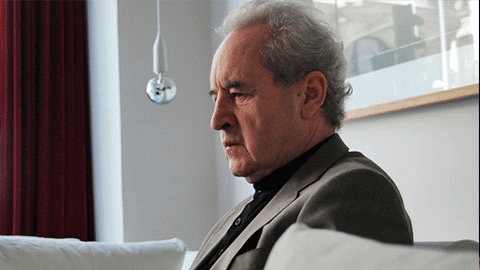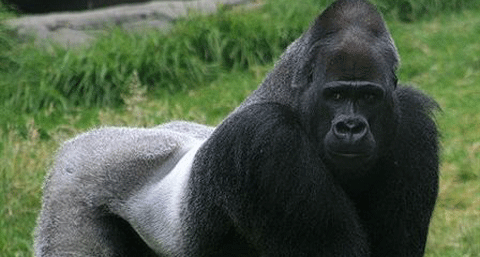6-7 June 2014
Radio for Routine Immunization (Are you Up-to-date?)
NEW DELHI, 6 June 2014: Over 40 Radio jockeys and National Programming Heads of private FM radio stations gathered in the capital today for a first-of-its kind brainstorming and hands-on training workshop on Routine Immunization (RI) for radio professionals. The workshop was organized by UNICEF in partnership with AROI (Association of Radio Operators of India), as part of its efforts to build awareness on Routine immunization.
The two-day workshop brought together India’s top FM players from 9 priority states to stand up for a common cause- saving childrens’ lives from vaccine preventable diseases.
AROI president Anuradha Prasad, Prof. M. Obaid Siddiqui, Director, AJK Mass Communication Research Centre, Jamia Millia Islamia University, Ms. Monica Chaturvedi, Senior Advisor, Strategic Communciations, ITSU, Mr Tapas Sen, Chief Programming Officer, Radio Mirchi, Ms Pallavi Rao, Group Head, Radio Mirchi and Mr Anand Raj, National Programming Head, RED FM, also took part in the initiative.
Organized as part of the World Immunization Week, the workshop focused on how radio’s unparalleled reach and dedicated listenership could be leveraged to highlight the importance of vaccination for saving children’s lives.
Speaking at the occasion, Ms Anuradha Prasad, President AROI said, “FM radio has brought in vibrancy to radio broadcasting and is extremely popular across various sections of people—students, housewives, vendors and executives. It can play a significant role in promoting important social issues while weaving them in regular programming.”
Dr Obaid Siddiqui underscored that radio has always been an effective platform to disseminate information on social causes. “People can listen to radio anytime and anywhere they want. It is also a free medium. At places where literacy rates are low, where people cannot afford a TV set, radio is the only medium that can be relied on for information dissemination,” he stressed.
Currently, the radio sector is witnessing a boom, with private radio (allowed through FM) operating in 91 cities across the country, where there is about 70 to 80 percent radio penetration. There were 245 private FM radio stations operational by March 2012, besides the public service broadcaster – All India Radio (AIR), serving 99.18 percent of the population.
UNICEF is leveraging the strengths of FM radio to ensure a sustained discourse on immunization. Ms Caroline Den Dulk, Chief of Communication, UNICEF India, said, “All children have the right to survive and thrive and vaccines protect children for a lifetime. There is need for diverse stakeholders to focus on reaching out to the most vulnerable and marginalized children. As part of our media engagement, we realise the importance of engaging with radio as it has enabled us to reach key messages to audiences across the country.”
Of the 27 million children born in India every year, some 7.2 million remain unvaccinated. These children are mainly from the most marginalized sections, living in difficult-to-reach areas with lack of access to essential services.
Giving a brief on India’s Universal Immunization Program (UIP), Ms Genevieve Begokian, Chief of Health UNICEF India said the program is one of the largest public health initiatives in the world, in terms of geographical reach and number of children covered. However, on account of bottlenecks on both demand and supply side, there is still a long way to go as far as the program’s coverage was concerned.
Dr M K Agarwal, Deputy Commissioner (UIP), in the Ministry of Health and Family Welfare, spoke about the measures taken by the Government for increasing the immunization coverage. and enhancing the cold chain network.
Nearly 4000 children die in India every day and in most cases, these deaths are due to vaccine-preventable diseases like pneumonia, diarrhoea, measles and new born complications like sepsis.
Highlighting radio’s critical role in the fight against polio, Dr Sunil Bahl of the World Health Organization urged radio professionals to join forces for raising awareness on RI.
AROI’s Secretary General Uday Chawla said, “As so many child deaths can be avoided everyday through routine immunization, it is imperative for all stakeholders, especially media in India to focus on achieving 100 % immunization.”
Panelists Anand Raj, Mr Sen and Ms Rao welcomed the UNICEF-AROI initiative and said that FM radio was not all about music and entertainment. Each FM channel has its own target groups, its own brand positioning and was doing its bit in various program formats, they emphasized.
Prof Pervaiz Alam, Dean, School of Journalism and Mass Communication, Apeejay Stya University, who also spoke at the conference, said that radio has a very strong connect with the people. “The good part is you cannot teach anyone how to do good radio. But you can tell the radio professionals what are the areas that need the personal touch, that need special attention and that can trigger change,” he observed.
Radio Mirchi’s RJ Naved, whose pranks on Mirchi Murga are hugely popular among listeners, said,”Apart from entertaining their audience, RJs too can act responsibility and use the platform that radio gives them to take up social causes.
Top Radio professional RJ Simran Kohli who is the creative consultant for this initiative, has contributed to making the workshop more attuned to the needs and requirements of radio as a medium. She has initiated an online forum to bring all the RJs working on the issue together on Facebook page radio4child.
Dipping their palms in colours, participating RJs took the “pledge of life”, promising to raise awareness on RI on airwaves. RJ from Rajiv Nair of Big FM, Bhubaneswar very enthusiastically said, “Improving immunization coverage across poor performing states like Odisha is very important. Through my evening show that targets the youth and those driving back from office, I hope to get the message across.”
Awards have been instituted by UNICEF-AROI for the best program innovations and communication bytes on RI.
In the coming months, this national initiative will be expanded to states through a series of nine workshops in states with lowest immunization rates, namely Assam, Uttar Pradesh, Madhya Pradesh, Bihar, Rajasthan, Gujarat, Chhattisgarh, Jharkhand and Odisha.
The workshop also came out with a set of recommendations that will be disseminated to policy makers, civil society institutions, and media research institutions.
Certificates of participation were distributed at the end of workshop.
About UNICEF
UNICEF promotes the rights and wellbeing of every child, in everything we do. Together with our partners, we work in 190 countries and territories to translate that commitment into practical action, focusing special effort on reaching the most vulnerable and excluded children, to the benefit of all children, everywhere.
For more information, please contact:
• Caroline den Dulk, Chief of Communication, UNICEF India
• Geetanjali Master, Communication Specialist, UNICEF India
Tel: 91-981 810 5861, E-mail: gmaster@unicef.org
• Sonia Sarkar, Communication Officer- Media, UNICEF India
Tel: +91-981 017 0289, E-mail: ssarkar@unicef.org





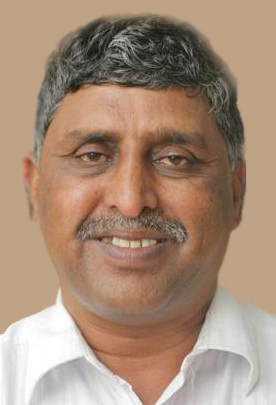 ” Public Procurement Policy for Micro and Small (MSEs) 2012 is undoubtedly a watershed development in MSME support initiatives. It is sad that most agencies not only have failed to inform MSEs about their procurement plans, but also have dragged their feet in extending even the basic facilities to MSEs whether it is exemption from earnest money or exemption from security deposits by successful tenderers. It looks highly unlikely that a mandatory procurement target of 20% from MSEs will be met by government agencies in such a situation. There is a need to make the Policy work for MSEs as was envisaged. ”
” Public Procurement Policy for Micro and Small (MSEs) 2012 is undoubtedly a watershed development in MSME support initiatives. It is sad that most agencies not only have failed to inform MSEs about their procurement plans, but also have dragged their feet in extending even the basic facilities to MSEs whether it is exemption from earnest money or exemption from security deposits by successful tenderers. It looks highly unlikely that a mandatory procurement target of 20% from MSEs will be met by government agencies in such a situation. There is a need to make the Policy work for MSEs as was envisaged. ”
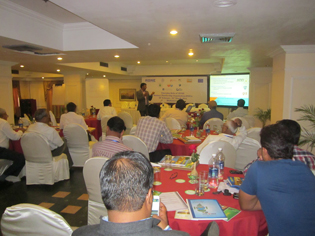 As part of the capacity building of MSME associations, special sessions were convened for leaders of associations in Eastern and Western Part of India on how they could leverage Knowledge and News Network (KNN) for advocacy and knowledge dissemination. The two day workshops on “Emerging Roles of MSME Business Membership Organizations (BMOs)” were organized under EU Switch Asia Project. Over twenty four associations were present in Ahmedabad and 20 in Bhubaneshwar. KNN is a new age internet based media platform which enables aggregation of MSME related news and also dissemination of knowledge across MSMEs and institutions. Over 165 associations and 110 institutions are networked in KNN.
As part of the capacity building of MSME associations, special sessions were convened for leaders of associations in Eastern and Western Part of India on how they could leverage Knowledge and News Network (KNN) for advocacy and knowledge dissemination. The two day workshops on “Emerging Roles of MSME Business Membership Organizations (BMOs)” were organized under EU Switch Asia Project. Over twenty four associations were present in Ahmedabad and 20 in Bhubaneshwar. KNN is a new age internet based media platform which enables aggregation of MSME related news and also dissemination of knowledge across MSMEs and institutions. Over 165 associations and 110 institutions are networked in KNN.

 After starting and growing a company to early success, entrepreneurs can sometimes let confidence go to their heads. Not only can over-confidence be a turn off for others, it can blind you to important changes you need to make at your company. Being confident shouldn’t make you think you can do no wrong. When markets shift, you can’t always stay the course and ride the success you’ve enjoyed so far. A confident entrepreneur will know when to make the changes that will set his or her company up for success.
After starting and growing a company to early success, entrepreneurs can sometimes let confidence go to their heads. Not only can over-confidence be a turn off for others, it can blind you to important changes you need to make at your company. Being confident shouldn’t make you think you can do no wrong. When markets shift, you can’t always stay the course and ride the success you’ve enjoyed so far. A confident entrepreneur will know when to make the changes that will set his or her company up for success. The Reserve Bank of India (RBI) has hiked the trade related remittance limit from Rs 2 lakh to Rs 5 lakh per transaction with immediate effect, amid increased number of transactions handled by Exchange Houses. “On a review of the permitted transactions under the Rupee Drawing Arrangements (RDAs), it has been decided to increase the limit of trade transactions from the existing Rs 2 lakh per transaction to Rs 5 lakh per transaction, with immediate effect,” RBI said in a notification. For this necessary changes have been made in the Memorandum of Instructions for Opening and Maintenance of Rupee/ Foreign Currency Vostro Accounts of Non-resident Exchange Houses.
The Reserve Bank of India (RBI) has hiked the trade related remittance limit from Rs 2 lakh to Rs 5 lakh per transaction with immediate effect, amid increased number of transactions handled by Exchange Houses. “On a review of the permitted transactions under the Rupee Drawing Arrangements (RDAs), it has been decided to increase the limit of trade transactions from the existing Rs 2 lakh per transaction to Rs 5 lakh per transaction, with immediate effect,” RBI said in a notification. For this necessary changes have been made in the Memorandum of Instructions for Opening and Maintenance of Rupee/ Foreign Currency Vostro Accounts of Non-resident Exchange Houses. India’s seafood export industry, dominated by small and medium enterprises (SMEs), and growing at 20 per cent a year, will soon get a shot in the arm. In a bid to help entrepreneurs, the Marine Products Export Development Authority (MPEDA) under the ministry of commerce is undertaking a major co-branding drive, which will promote the brand equity of Indian marine products in regulated markets. Seafood exports from India are expected to touch $4.3 billion in the current fiscal year and $10 billion a year by 2020, according to MPEDA.
India’s seafood export industry, dominated by small and medium enterprises (SMEs), and growing at 20 per cent a year, will soon get a shot in the arm. In a bid to help entrepreneurs, the Marine Products Export Development Authority (MPEDA) under the ministry of commerce is undertaking a major co-branding drive, which will promote the brand equity of Indian marine products in regulated markets. Seafood exports from India are expected to touch $4.3 billion in the current fiscal year and $10 billion a year by 2020, according to MPEDA. India’s industrial production just about reversed the trend in January, 2014 turning from a negative trend in December, 2013 but a mere growth of 0.1 per cent is no consolation as half of the industry segments continued to contract. For the April-January period, there was no growth in the Index of Industrial Production, though some glimmer of hope was visible in the form of slight fall in the retail inflation. The inflation based on consumer price index for February was a tad lower at 8.10 per cent from 8.79 per cent in January, 2014.
India’s industrial production just about reversed the trend in January, 2014 turning from a negative trend in December, 2013 but a mere growth of 0.1 per cent is no consolation as half of the industry segments continued to contract. For the April-January period, there was no growth in the Index of Industrial Production, though some glimmer of hope was visible in the form of slight fall in the retail inflation. The inflation based on consumer price index for February was a tad lower at 8.10 per cent from 8.79 per cent in January, 2014. India has informed the World Trade Organisation’s (WTO) Committee on Safeguards that it has initiated a safeguard investigation on sodium citrate, to protect domestic producers of the substance against threat caused by increased imports of the same. The Director General (Safeguards), Customs and Central Excise has initiated the safeguard investigation following a petition from domestic producers who account for 90 per cent of the production of sodium citrate.
India has informed the World Trade Organisation’s (WTO) Committee on Safeguards that it has initiated a safeguard investigation on sodium citrate, to protect domestic producers of the substance against threat caused by increased imports of the same. The Director General (Safeguards), Customs and Central Excise has initiated the safeguard investigation following a petition from domestic producers who account for 90 per cent of the production of sodium citrate.
 The rupee has been on a winning streak since the start of this year. Despite the US cutting back its bond-buying programme, the rupee has held its own. In fact, it has appreciated 1.5 per cent over the past month, driven by steady foreign capital flows into Indian bonds and stocks The sharp improvement in the current account deficit (CAD) has contributed in equal measure to the rupee’s stability. Since last June, Indian exports have shown a pick-up, as India’s competitiveness improved with the rupee’s fall.
The rupee has been on a winning streak since the start of this year. Despite the US cutting back its bond-buying programme, the rupee has held its own. In fact, it has appreciated 1.5 per cent over the past month, driven by steady foreign capital flows into Indian bonds and stocks The sharp improvement in the current account deficit (CAD) has contributed in equal measure to the rupee’s stability. Since last June, Indian exports have shown a pick-up, as India’s competitiveness improved with the rupee’s fall. A meeting of the Reserve Bank of India’s Standing Advisory Committee has been convened this month to review the flow of institutional credit to the micro, small and medium enterprises (MSME) sector, according to the fortnightly e-newsletter of the Federation of Indian Micro, Small and Medium Enterprises (FISME). The RBI has constituted the Standing Advisory Committee (SAC) with Deputy Governor K C Chakrabarty as chairman. The officials of the ministry of micro, small and medium enterprises, banks and associations of the MSME sector are members of the SAC.
A meeting of the Reserve Bank of India’s Standing Advisory Committee has been convened this month to review the flow of institutional credit to the micro, small and medium enterprises (MSME) sector, according to the fortnightly e-newsletter of the Federation of Indian Micro, Small and Medium Enterprises (FISME). The RBI has constituted the Standing Advisory Committee (SAC) with Deputy Governor K C Chakrabarty as chairman. The officials of the ministry of micro, small and medium enterprises, banks and associations of the MSME sector are members of the SAC.
 Several small and medium-sized foundries across the country have been forced to stop production, owing to a demand slump. Industry insiders say that most of these units cater to automotive manufacturers and ancillaries, and that 10-15 per cent of them have either closed down or stopped production temporarily. About 80 per cent of India’s $12 billion foundry industry comprises SMEs, 15 per cent are medium-sized players and only five per cent are large units. Reena Bhagwati, joint managing director of Bhagwati Autocast Ltd and president of the Institute of Indian Foundrymen (IIF), said that while average capacity utilisation in the overall foundry industry is around 70 per cent, for those supplying to automotive players, especially manufacturers of heavy commercial vehicles and passenger cars, average utilisation is down to 50-55 per cent.
Several small and medium-sized foundries across the country have been forced to stop production, owing to a demand slump. Industry insiders say that most of these units cater to automotive manufacturers and ancillaries, and that 10-15 per cent of them have either closed down or stopped production temporarily. About 80 per cent of India’s $12 billion foundry industry comprises SMEs, 15 per cent are medium-sized players and only five per cent are large units. Reena Bhagwati, joint managing director of Bhagwati Autocast Ltd and president of the Institute of Indian Foundrymen (IIF), said that while average capacity utilisation in the overall foundry industry is around 70 per cent, for those supplying to automotive players, especially manufacturers of heavy commercial vehicles and passenger cars, average utilisation is down to 50-55 per cent. Most businesses, especially those belonging to the micro, small and medium enterprise sector are affected by the changing climate which causes damage to their premises and processes, so much so that, at times it runs them out of business, a report has said. This was stated by the Gujarat Institute of Competitiveness (GIC) which has now designed a project to help MSMEs prepare for changes in weather patterns and adapt to climate change. On the need for such a programme, “awareness about these risks among businesses still remains low,” Director, GIC, Jagat Shah said.
Most businesses, especially those belonging to the micro, small and medium enterprise sector are affected by the changing climate which causes damage to their premises and processes, so much so that, at times it runs them out of business, a report has said. This was stated by the Gujarat Institute of Competitiveness (GIC) which has now designed a project to help MSMEs prepare for changes in weather patterns and adapt to climate change. On the need for such a programme, “awareness about these risks among businesses still remains low,” Director, GIC, Jagat Shah said. Towards integrated development of the Andhra Pradesh Mega handloom cluster, Textile Ministry wants to set up Market Development and Publicity Centre; Design Development and Product Diversification Centre; and Yarn Bank in the Prakasam and Guntur districts of the state. The project is being implemented under the Comprehensive Handlooms Cluster Development Scheme (CHDS). The Development Commissioner, Handlooms has invited bids from private agencies for implementation of the project.
Towards integrated development of the Andhra Pradesh Mega handloom cluster, Textile Ministry wants to set up Market Development and Publicity Centre; Design Development and Product Diversification Centre; and Yarn Bank in the Prakasam and Guntur districts of the state. The project is being implemented under the Comprehensive Handlooms Cluster Development Scheme (CHDS). The Development Commissioner, Handlooms has invited bids from private agencies for implementation of the project. Worried over diminishing returns from small holdings in the state, young and educated farmers in Punjab with an entrepreneurial streak are venturing into commercial dairy farming. The farmers say that a commercial dairy farm gives them high returns compared with conventional agriculture on small land-holdings, which is proving unsustainable. There are about 6,000 progressive dairy farmers in Punjab and the state has more such farmers than any other Indian state, with farms varying in size from 10 to 500 high-yielding breeds of cows. Also, the daily production of milk by these farms is about 12-15 lakh litres.
Worried over diminishing returns from small holdings in the state, young and educated farmers in Punjab with an entrepreneurial streak are venturing into commercial dairy farming. The farmers say that a commercial dairy farm gives them high returns compared with conventional agriculture on small land-holdings, which is proving unsustainable. There are about 6,000 progressive dairy farmers in Punjab and the state has more such farmers than any other Indian state, with farms varying in size from 10 to 500 high-yielding breeds of cows. Also, the daily production of milk by these farms is about 12-15 lakh litres. The Uttar Pradesh government’s announcement asking small, medium and major enterprises to submit applications online for setting up new industrial units in the state from May 1 has been welcomed by the units, although they are doubtful about the sustainability of the process. “Submitting applications online will be really good for the industry but we don’t know how the government will sustain it,” said Managing Director of Chakradhar Chemicals, Neeraj Kedia from Meerut. Last week the Uttar Pradesh Government made an announcement to make it mandatory to submit applications online for setting up industrial units in the state including small, medium and major categories from May 1.
The Uttar Pradesh government’s announcement asking small, medium and major enterprises to submit applications online for setting up new industrial units in the state from May 1 has been welcomed by the units, although they are doubtful about the sustainability of the process. “Submitting applications online will be really good for the industry but we don’t know how the government will sustain it,” said Managing Director of Chakradhar Chemicals, Neeraj Kedia from Meerut. Last week the Uttar Pradesh Government made an announcement to make it mandatory to submit applications online for setting up industrial units in the state including small, medium and major categories from May 1. With the view to finding new places for developing tourism destinations in Uttarakhand, the Union Ministry of Tourism wants to conduct a study on tourism carrying capacity of existing and potential destinations for planning for infrastructure development in the state. “It has been realized that there is a need of conducting a study to assess the carrying capacity of the destinations of Uttarakhand for better planning in construction of infrastructure and other operational development activities for tourism to ensure climatic resilient tourism. “Therefore, Ministry of Tourism has decided to conduct a study on tourism carrying capacity of existing and potential destinations and planning for infrastructure development in Uttarakhand,” according to a ministry notification.
With the view to finding new places for developing tourism destinations in Uttarakhand, the Union Ministry of Tourism wants to conduct a study on tourism carrying capacity of existing and potential destinations for planning for infrastructure development in the state. “It has been realized that there is a need of conducting a study to assess the carrying capacity of the destinations of Uttarakhand for better planning in construction of infrastructure and other operational development activities for tourism to ensure climatic resilient tourism. “Therefore, Ministry of Tourism has decided to conduct a study on tourism carrying capacity of existing and potential destinations and planning for infrastructure development in Uttarakhand,” according to a ministry notification. In the broader framework of India-Africa cooperation, the two countries should give increasing focus to SME development and cooperation, said Executive Director, International Trade Centre, Arancha Gonzales. Speaking at the 10th CII-EXIM BANK Conclave on India Africa Project Partnership held here from March 9-11, she urged India and Africa to direct sharper focus on SME development and cooperation in the broader framework of India-Africa cooperation. She said that Africa’s SME sector could leverage the experiences of India’s SME development in the services sector. Citing this, she said the success of ‘Incredible India!’ promotion could inspire an ‘Amazing Africa’ initiative, a CII press release said.
In the broader framework of India-Africa cooperation, the two countries should give increasing focus to SME development and cooperation, said Executive Director, International Trade Centre, Arancha Gonzales. Speaking at the 10th CII-EXIM BANK Conclave on India Africa Project Partnership held here from March 9-11, she urged India and Africa to direct sharper focus on SME development and cooperation in the broader framework of India-Africa cooperation. She said that Africa’s SME sector could leverage the experiences of India’s SME development in the services sector. Citing this, she said the success of ‘Incredible India!’ promotion could inspire an ‘Amazing Africa’ initiative, a CII press release said. Trade relations between India and Australia have been growing steadily and with the “right mindsets” they can be enhanced further, Australian High Commissioner in India, Patrick Suckling has said. On the agreement of Uranium exports to India from Australia, he said the two countries were working on it and there has been “good progress”. “…(through this deal) we would just like to be assured that Uranium will be exported to India. That is how the frame- work is. Negotiations are currently underway. We are making good progress,” he said.
Trade relations between India and Australia have been growing steadily and with the “right mindsets” they can be enhanced further, Australian High Commissioner in India, Patrick Suckling has said. On the agreement of Uranium exports to India from Australia, he said the two countries were working on it and there has been “good progress”. “…(through this deal) we would just like to be assured that Uranium will be exported to India. That is how the frame- work is. Negotiations are currently underway. We are making good progress,” he said. Government’s “Visa on Arrival” (VoA) Scheme has helped attracting more foreign tourists to India, with maximum number of Japanese tourists, as there was a growth of 6.8 per cent per cent in the number of tourists availing of this scheme during the period January-February, 2014. A total number of 3,883 VoAs have been issued in this period as compared to 3,637 VoAs during the corresponding period of 2013,” said official data. During the month of February 2014, a total of 1,980 VoAs were issued under this scheme as compared to 1,947 VoAs during the month of February 2013, registering a growth of 1.7 per cent, the data said.
Government’s “Visa on Arrival” (VoA) Scheme has helped attracting more foreign tourists to India, with maximum number of Japanese tourists, as there was a growth of 6.8 per cent per cent in the number of tourists availing of this scheme during the period January-February, 2014. A total number of 3,883 VoAs have been issued in this period as compared to 3,637 VoAs during the corresponding period of 2013,” said official data. During the month of February 2014, a total of 1,980 VoAs were issued under this scheme as compared to 1,947 VoAs during the month of February 2013, registering a growth of 1.7 per cent, the data said. The UK Trade and Investment (UKTI) will be launching a hard-sell marketing initiative in India to forge tie-ups with Indian firms, including MSMEs, for promoting British investment in India. Last December, UK’s Secretary of State (Minister) for business, innovation and skills, Vince Cable visited India to explore business opportunities and strengthen existing partnerships in engineering, education skills and innovation. He was accompanied by a 25 member UK business delegation who visited four cities (New Delhi, Coimbatore, Bangalore and Chennai) with an aim to push business collaboration and work towards doubling trade with India by 2015.
The UK Trade and Investment (UKTI) will be launching a hard-sell marketing initiative in India to forge tie-ups with Indian firms, including MSMEs, for promoting British investment in India. Last December, UK’s Secretary of State (Minister) for business, innovation and skills, Vince Cable visited India to explore business opportunities and strengthen existing partnerships in engineering, education skills and innovation. He was accompanied by a 25 member UK business delegation who visited four cities (New Delhi, Coimbatore, Bangalore and Chennai) with an aim to push business collaboration and work towards doubling trade with India by 2015.
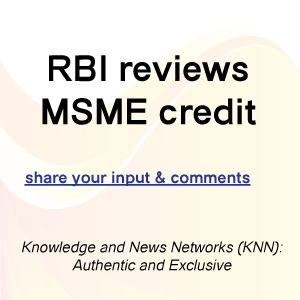
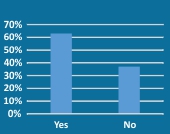 According to the FISME Factor, 63 per cent of the Micro, Small and Medium Enterprises (MSMEs), are of the opinion that after the scenario of the last session of Parliament, India should go for Presidential system.
According to the FISME Factor, 63 per cent of the Micro, Small and Medium Enterprises (MSMEs), are of the opinion that after the scenario of the last session of Parliament, India should go for Presidential system. The market for professional financial advisors is not dying any time soon. However, technology has transformed the money management space as well. Your finances are today literally on your fingertips. Here are a few popular sites and apps that can help you manage your money on a day to day basis; some of them even offering integrated financial planning and portfolio management.
The market for professional financial advisors is not dying any time soon. However, technology has transformed the money management space as well. Your finances are today literally on your fingertips. Here are a few popular sites and apps that can help you manage your money on a day to day basis; some of them even offering integrated financial planning and portfolio management. If the Indian consumer is spoilt for choice when it comes to eyewear, blame it on the opening up of the Indian economy in the ’90s. For that’s when Deepak Panchamia spotted an opportunity to import and distribute top-notch brands of optical wear, spectacle frames and sunglasses in India. Yes, pretty farsighted! Launching his venture, Pearl Enterprise in Mumbai in 1989, Panchamia boasts names like Puma, Esprit, Tru Trussardi, Giordano and many more in his portfolio.
If the Indian consumer is spoilt for choice when it comes to eyewear, blame it on the opening up of the Indian economy in the ’90s. For that’s when Deepak Panchamia spotted an opportunity to import and distribute top-notch brands of optical wear, spectacle frames and sunglasses in India. Yes, pretty farsighted! Launching his venture, Pearl Enterprise in Mumbai in 1989, Panchamia boasts names like Puma, Esprit, Tru Trussardi, Giordano and many more in his portfolio. More and more small units manufacturing bi- cycle parts here are turning sick due to severe loss being faced by the local industry due to import of Chinese goods through South Asian Free Trade Areas (SAFTA) route, mostly Nepal , Bangladesh and Sri Lanka.
More and more small units manufacturing bi- cycle parts here are turning sick due to severe loss being faced by the local industry due to import of Chinese goods through South Asian Free Trade Areas (SAFTA) route, mostly Nepal , Bangladesh and Sri Lanka. Soon your kabaadiwala (scrap dealer) could be seen wielding a smartphone and calculating how many green points you have earned even as he weighs old newspapers and other dry waste at your doorstep. That is the vision shared by Sandeep Patel and his partners Dhrumin Patel, Chirag Patel and Ravi Patel at the Ahmedabad-based Nepra Resource Management, the start-up behind Let’s Recycle. Launched in December 2011, the venture has revolutionised dry waste collection and management in Ahmedabad.
Soon your kabaadiwala (scrap dealer) could be seen wielding a smartphone and calculating how many green points you have earned even as he weighs old newspapers and other dry waste at your doorstep. That is the vision shared by Sandeep Patel and his partners Dhrumin Patel, Chirag Patel and Ravi Patel at the Ahmedabad-based Nepra Resource Management, the start-up behind Let’s Recycle. Launched in December 2011, the venture has revolutionised dry waste collection and management in Ahmedabad. Life throws challenges when you least expect them. But what if life tosses you a bouquet of challenges? The answer to that question is written into the script of CICO Technologies, a reputed name in the construction chemicals business in India. An entrepreneur by accident, Chairperson and Managing Director, CICO Technologies, Anasuya Gupta, remarks with measured ease, “Every morning, there are fresh challenges and one needs to stay calm and do what is right for the moment, with honesty and a sense of purpose. Sometimes it works, sometimes it doesn’t. The important thing is to stay focused.”
Life throws challenges when you least expect them. But what if life tosses you a bouquet of challenges? The answer to that question is written into the script of CICO Technologies, a reputed name in the construction chemicals business in India. An entrepreneur by accident, Chairperson and Managing Director, CICO Technologies, Anasuya Gupta, remarks with measured ease, “Every morning, there are fresh challenges and one needs to stay calm and do what is right for the moment, with honesty and a sense of purpose. Sometimes it works, sometimes it doesn’t. The important thing is to stay focused.” ” The most valuable thing you can make is a mistake- you can’t learn anything from being perfect. ”
” The most valuable thing you can make is a mistake- you can’t learn anything from being perfect. ”






